‘A beautiful lady is an accident of nature. A beautiful old lady is a work of art.’
– Louis Nizer
When I was ten years old, I made enemies with an elderly Italian lady who lived across the street. The local children called her ‘Reeny’ but her real name was Severina.
We lived in the seaside village of Pegwell in Kent; our house sat at the top of a hill road that led up from miles of coastal farmland and saltmarshes. Reeny lived in the bungalow opposite. Her front garden was a small piece of old Italy, strewn with mints, peppers, parsleys and even oregano in the hotter years. In the early season her place was barely visible but by midsummer you couldn’t see it for all the foliage. In time, we came to call it Reeny’s Jungle.
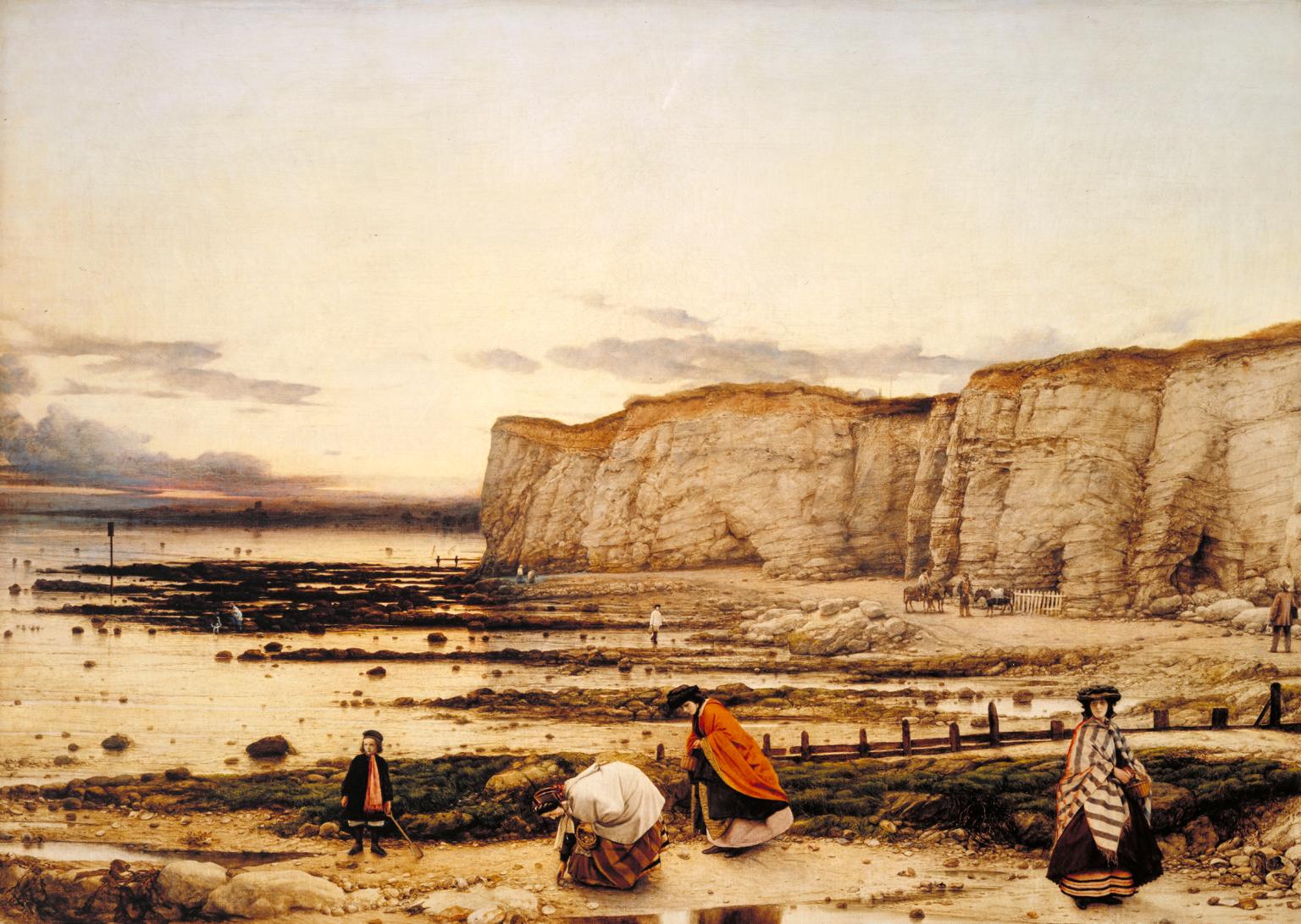
The long summer holidays were a type of savage paradise. Pegwell was full of young families- a dozen or so had children of a similar age to myself and I made lots of friends. Like all 80s kids, we spent late July reacquainting ourselves with the faces of the previous, distant summer. Formalities gradually dropped as we became browner and sillier. I remember rock-pooling, BMX races, catapult contests and fishing competitions. But as the days got hotter, a hierarchy began to exist. Friends became blood-brothers and groups developed into gangs, which in turn became tribes. The local landscape was ours for the taking; unleashed from school and adult control, the freedom was at times frightening. But we wanted more, so whilst our parents worked, we roamed, strutted and climbed until the limits of our new world became apparent. Gradually, various local landmarks became ‘outposts’ delineating our territory.
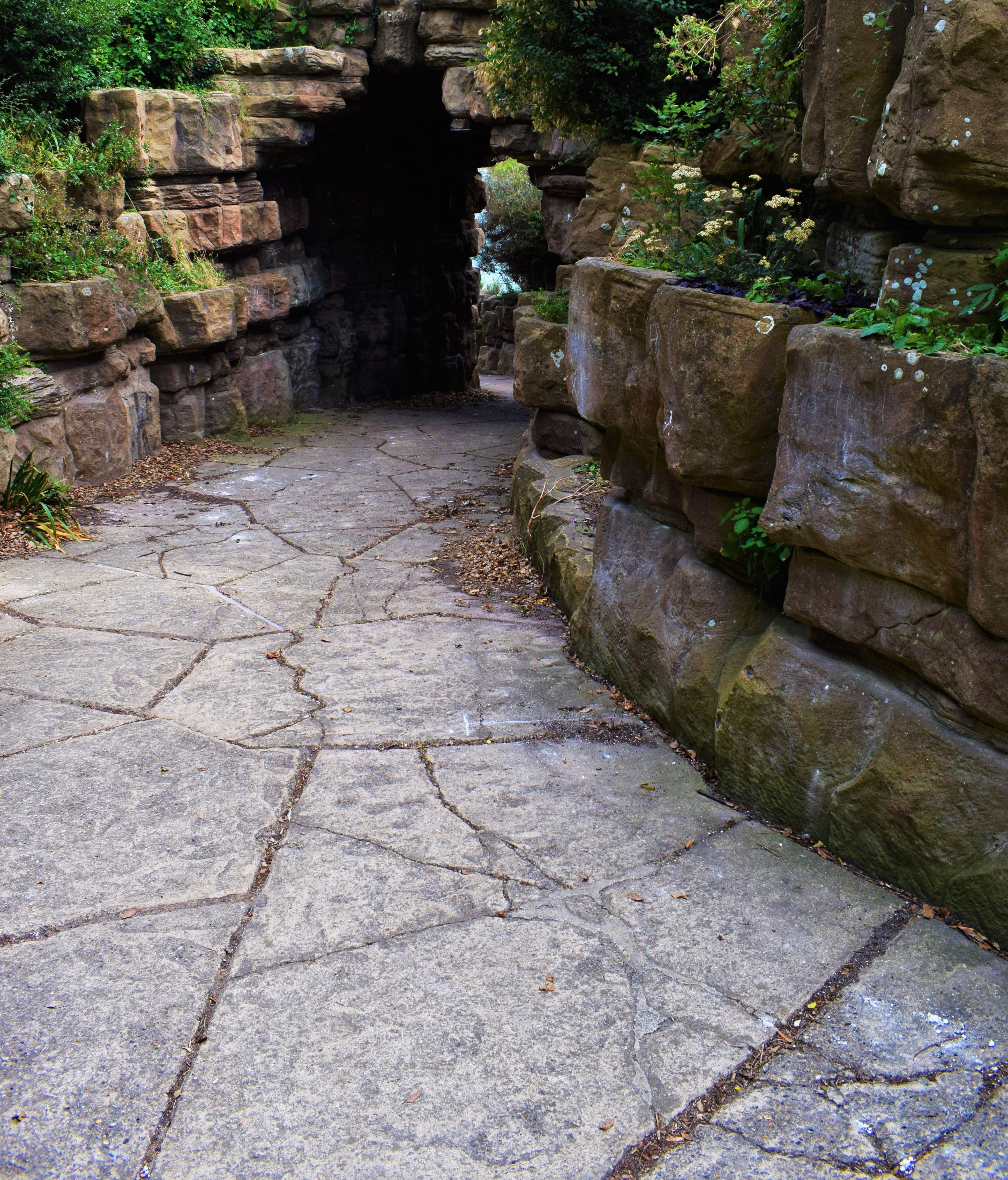
To the south there was the ‘Chine’- a mysterious gap between the cliffs that opened onto ‘Crabland’, where we’d go rock-pooling. Then, in the middle of Pegwell there was the ‘Dark Alley’, or ‘Smuggler’s Alley’ as it was properly called; a long passage that threaded its way between the new estate and the older, wooded area before the farmland started. Westwards, in the copse at the bottom of our hill stood Chilton Farmhouse, which today still represents a hard border between mankind and the animal kingdom. Beyond here lurked the wild things. Firstly the farm, and then after a few hundred yards- the Pegwell Bay nature reserve.
Above all other feral creatures, even summer children, the foxes scorned this man-made marker. By day they stayed out in the fields, but midnight hunger brought them crashing through the edgelands. In the blue of night, they’d penetrate the hedges separating the farm from the village, before negotiating the coniferous ascent uphill. Wriggling and writhing underneath cars and caravans, they’d arise like wraiths into our front garden. Sometimes in my dreams I can still hear their calls; they bore old England into the suburbs- and burrowed deeper still into our subconscious minds.
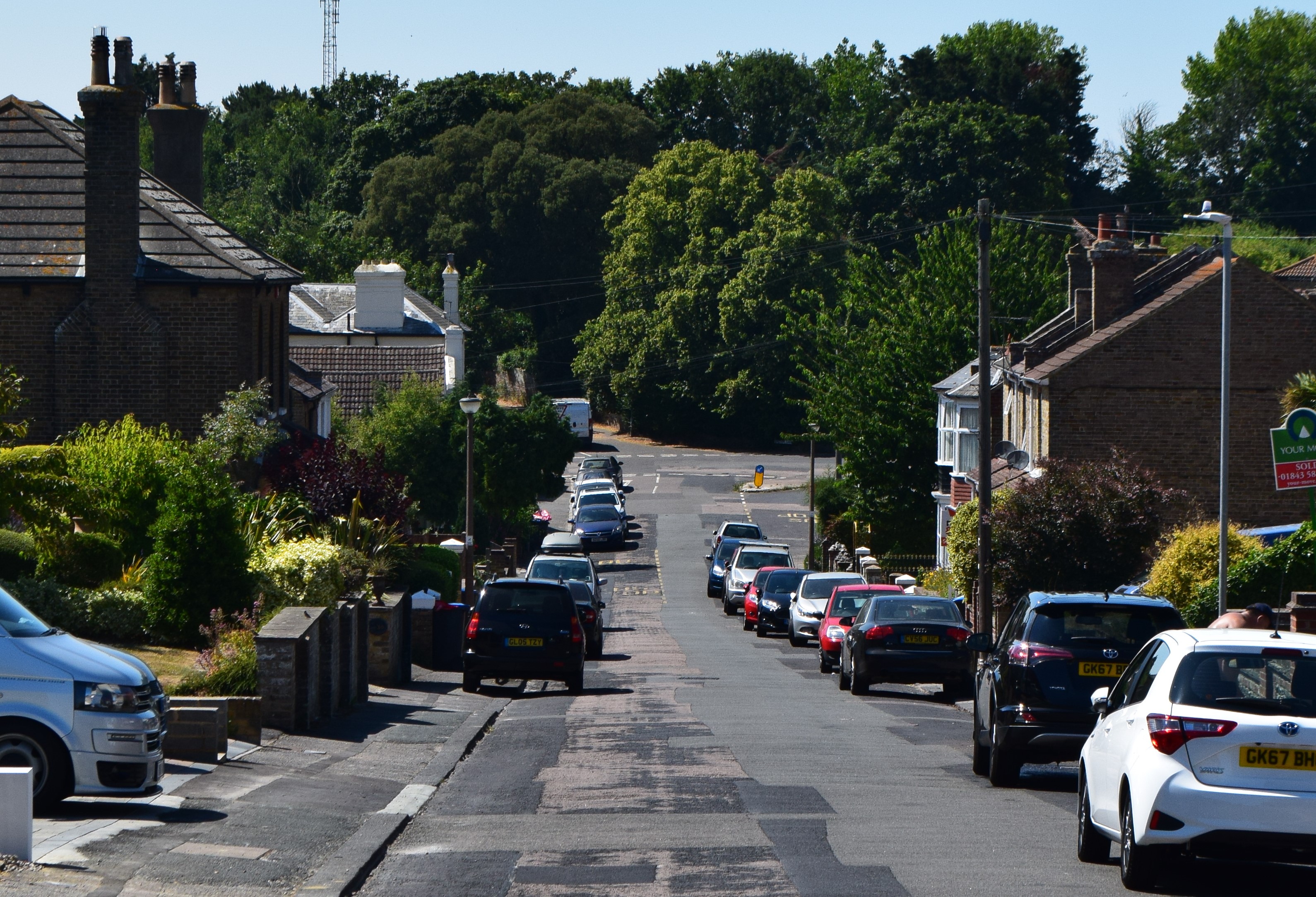
The other great exception to this border was Reeny’s front garden. It’s not to say that that the village was an ecological desert. We had the itinerant foxes, all the usual garden birds, insects, frogs and twice- scorpions; the latter must have established a colony here before the newer houses were built in the 70s. An ill-tempered male specimen got into my father’s overalls one spring. He’d been wearing them for ten minutes before realising. But usually the really exotic creatures were just out of our reach and meant wandering down to the farm or coastal paths… Unless you took a short-cut and visited Reeny’s Jungle, which was treated as a kind of ‘park and ride’ by linnets, wrens, hedgehogs (my brother and I used to help them crossing the street) and all manner of butterflies so often restricted to the farmland beneath us.
Like all child-gangs, we fostered an insatiable craving for the mythical; it didn’t take long for us to surmise that the old lady was an evil sorceress. The aromas that drifted over her front wall were deemed to be poisonous; the tangled web of trees, the wall of ancient hawthorn bushes- these were all under Reeny’s command and could throttle us at any moment. Such a place is hard for a child to resist and it soon became a kind of dark church about which we’d congregate, particularly in the evenings; my mother could see us there from our front window, which meant we could stay out a little longer.
The jungle would be growing quiet by then but that’s when it called to us the most. One by one, the songbirds stopped chanting and the daytime smells disappeared. A great litany of evening scents would ascend to proselytise us. The garden may have looked messy to the naked eye but in terms of the nose, it was planned to perfection; Reeny planted her herbs strictly according to Milanese tradition, just the way she’d learned in the old country. My young, English nostrils stood no chance. Each dusk, the jungle serenaded the neighbourhood with a complex rhythm of perfumes: honeysuckle first- my mother’s favourite- but then the darker, more primitive smells of Italian tobacco plants would rise. Finally, just before dark, a lemony, soapy scent would pervade everything- including my brain, which was addled by this point. I’d wander home as though staggering back from the village pub and collapse into a deep sleep.
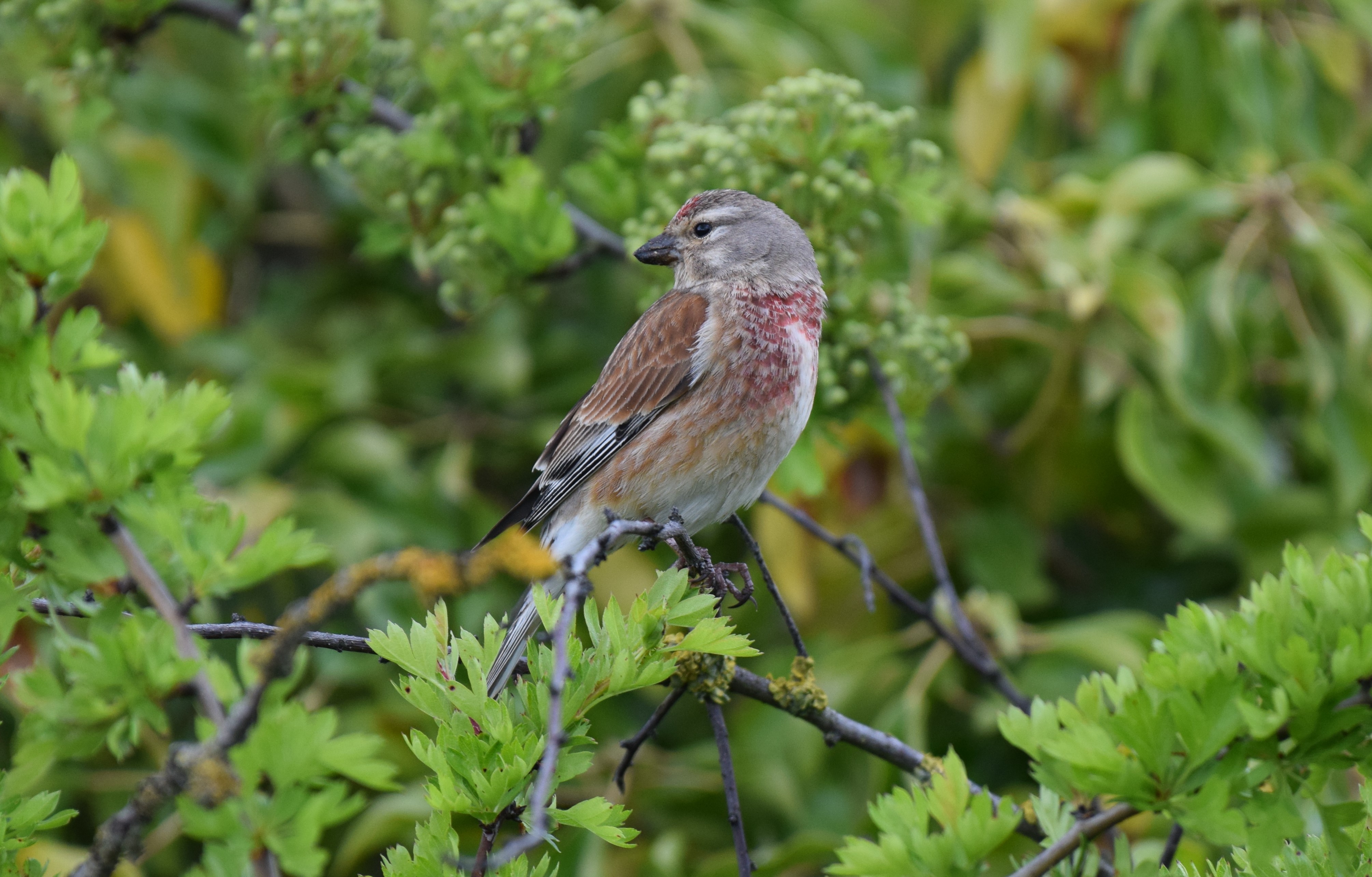
We were nice children in Pegwell, but children nonetheless. When we got bored with BMXs and football, we’d sometimes play ‘Knockdown Ginger’- the game where you have to knock on somebody’s front door and then run off. Before long, we were daring each other to ‘raid the Jungle’. Early in the summer, our gang decreed that we could only walk past Reeny’s house whilst holding our breath at the same time, so as not to become enchanted by one of the witch’s ‘smell-spells’. This wasn’t a problem for me: despite bouts of mild asthma, I could hold my breath longer than any other child in the area.
But in a ten-year old’s world, all special powers are tossed into the tribal pot; before long I was being cajoled, nudged and (worst of all) dared to be the first raider. I’m not sure how strong a ‘dare’ is for a child today but when I was younger it meant a lot; successful completion signalled a rise up the clan’s pecking order. It was acceptable (not to mention sensible) to refuse ridiculous, over-the-top dares (such as climbing the West Cliff or cycling solo through the Dark Alley). But it was seen as reasonable for me to attempt a ‘knock and run’ on Reeny’s place. I had the ‘power of the breath’, after all. For me to refuse would mean being labelled the worst of all soubriquets in those halcyon, pre-video game days… A chicken.
So one hot day in early August ’88, I prepared to enter the jungle. Half a dozen kids watched from BMXs whilst I took my final breath. As I felt my lungs fill with air, I beat my chest a couple of times like Tarzan. The King of the Jungle. Or so I thought. Then the chants began. ‘Do it… Do it… Do it… Dooo ittttt!’
The last of the dares was still hanging in the air as I breached the front gate in one tigerish leap. The first child to enter the Jungle. And perhaps the last. Within seconds I felt that I’d wandered too far and something terrible awaited me should I travel any further. Still, I was fast, I thought. Faster than any old lady- witch or otherwise.
But even a young tiger can’t outrun a storm.
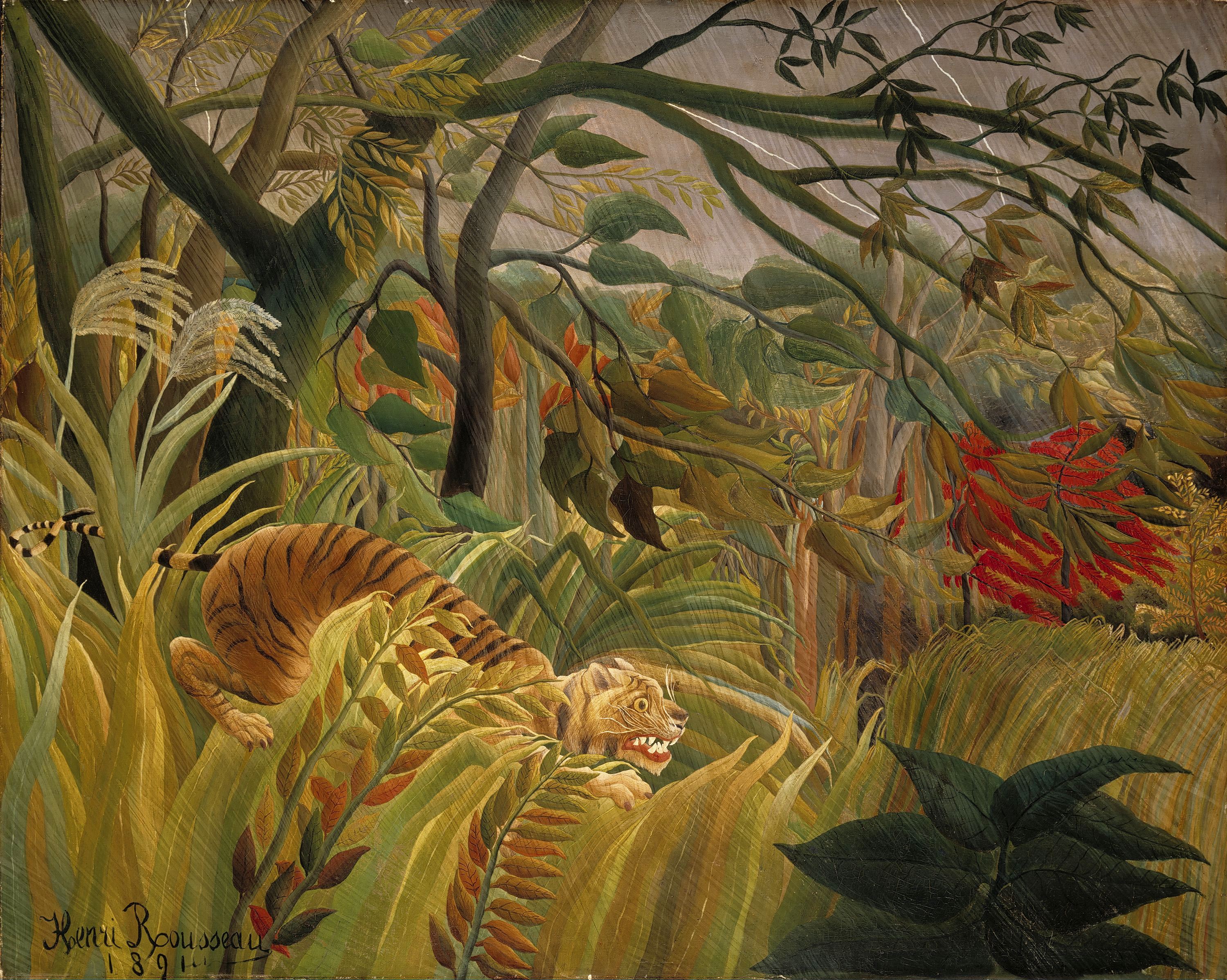
As my fear grew, so did my bravado. I made a great show of diving into the sea of hawthorn that had terrified us for so long. Pushing out in half circles with both hands and occasionally crawling, I paddled through a backwater of tangles until I half-emerged into a clearing. I looked up and saw an old stone sundial, upon which stood a linnet. It was the first time I’d been this close to one and it met my eye. We stared at each other for what seemed like several minutes before I remembered a story I’d been told at school about hawthorns containing fairies who masqueraded as song-birds. I began to crawl out of the bushes; when I next looked, the bird had flown.
I stood upright for the first time since entering the Jungle. I could hear the other children calling me but their voices were faint now. In front of me, somebody had trodden a rough path into yet another ocean of entwined bushes, trees and weeds, all of which served to send a ten-year old boy into a state of hypnotic trance. It was impossible to tell where one plant ended or another began and as I stood staring into the green silence, I somehow missed the growing shadow that came hobbling out into the clearance.
She wasn’t at all what I’d expected. For one thing, Reeny was huge. Not in height; she barely made five feet tall- but she easily looked that in width. Her skin was a walnut brown all over- and wrinkled like one, too. On her face she wore an enormous pair of glasses- the type that all old ladies wore in those days. Finally, she carried not a broom- but a walking stick. In the jade half-light of her jungle, and leaning on her cane, Reeny seemed more like Yoda than a witch… Until she spoke that is.
“Waddaya fink you doin’?! You bedda gedda outta here now!”
The delights of a strong Italian accent were lost on a ten-year-old Kentish boy; I barely understood a word of her staccato barks. But I did remember what the gang had told me about her smell-spells and promptly held my breath. I then turned and ran.
Plunging straight back into the hawthorn bush, I found the faster I struggled, the slower I made my escape. I was soon suspended like a fly in a spider’s web. Behind me I could hear Reeny laughing- or rather cackling- as I would tell the other kids. I allowed myself to breathe in a little (only, of course, whilst crossing my fingers and uttering the most powerful of all counter-spells known to Kentish children of that era: ‘Feign Knights!’- pronounced ‘feynites’). Calming down, I elbowed and shouldered my way through the jungle until my nose hit the front wall. On the roadside, I discovered that my friends were long gone. Emerging full of wonder and adrenalin, I hadn’t been so frightened since the old Greek man chased me out of the cafeteria at the local boating pool (I’d run out of money and tried inserting bottle-tops to get a credit on the ‘Double Dragon’ machine).
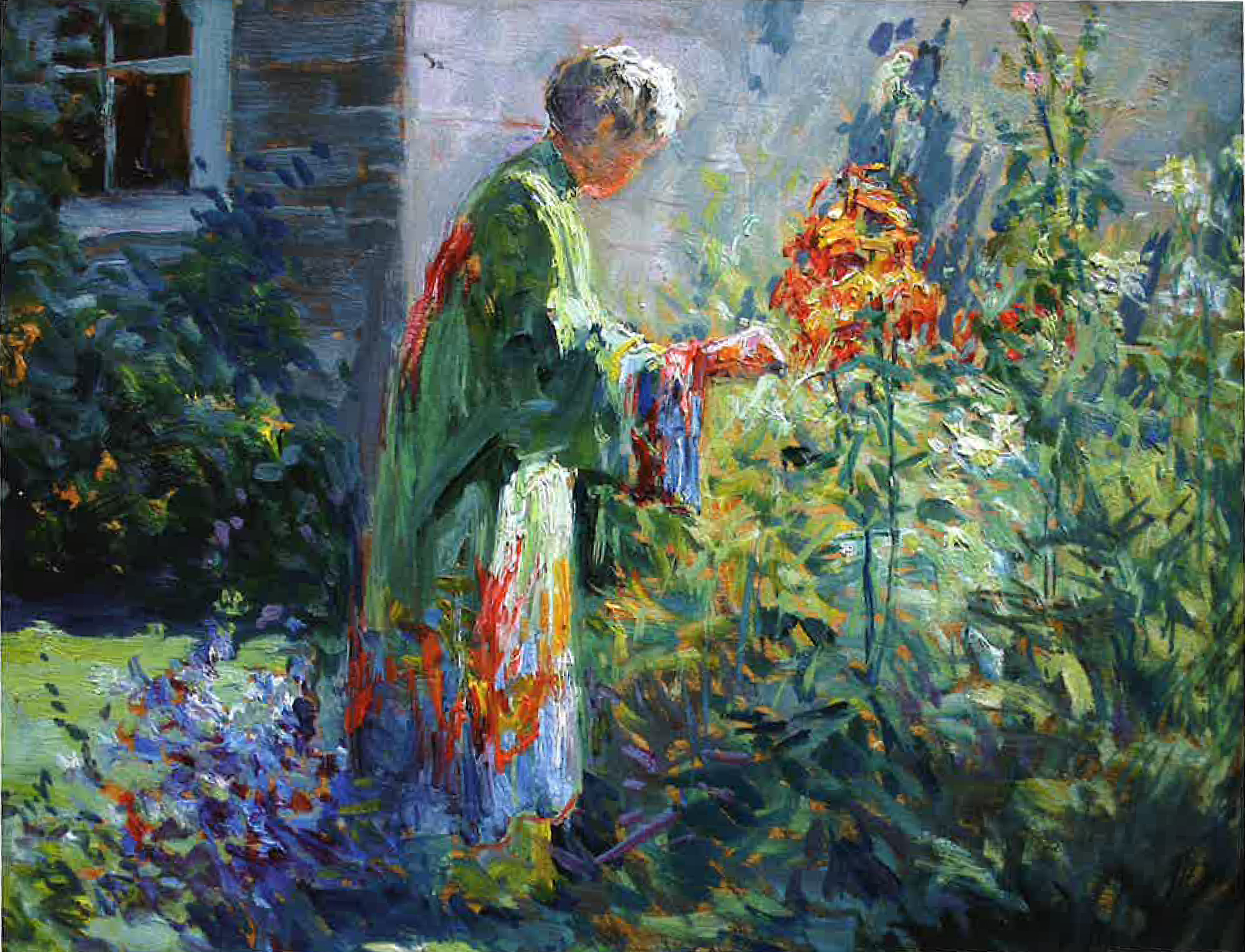
I didn’t see Reeny again until a few days later. At the time, there was a gang of travelling gypsies who used to turn up in Pegwell most summers. This particular season, my father had hired them to tarmac our driveway and they used to let me help out a little. Or rather, they tolerated me. One hot afternoon, we all had our shirts off and I was trying my very best to look tough (which was difficult for a child nicknamed ‘Shaggy’ on account of how skinny he was) when Reeny came walking up the garden path, stick in one hand, Yorkshire terrier (‘Petal’, whom I was later to become very fond of) in the other. My boyish machismo disappeared and was rapidly replaced by the beginnings of an asthma attack. I was still mindful of her magic but struggled to hold my breath. Reeny walked through all of us and marched right up to my dad, who was on a ladder at the time fixing a window:
“Hey you- you, yes you! Do you know ‘ow to fixxa the toilets?! It wonna flush!”
My father was a dark-skinned, fearsome looking fellow of about 17 stones. Passers-by could easily have mistaken him for the King of the local gypsy tribe but Reeny didn’t care less. In any case, she’d picked the right stooge. They started talking and within seconds she had him whipped. He explained that he wasn’t a plumber but that he’d come over in a while to see what he could do. Before leaving, Reeny briefly inspected the tarmac gang; I glanced away but could feel her eye upon me. I only looked up when I couldn’t hold my breath any longer but like the linnet- she’d disappeared.
I’m grateful to say that she came back the next day. My dad had refused all payment (she tried stuffing wads of notes into his hands) so instead she came over the road with huge bags of sweets for my brother and I; we exchanged the most furtive of glances at one another- before scoffing the lot. I’m also grateful that she offered to cook for my family on the following Saturday night; it was my first taste of real Italian food and to this day, I’m hooked. But most of all I’m grateful that I got to know her over the next three years. There weren’t a lot of old people in my family. And there were certainly no Italians. Both my grandfathers worked the pits and died before I was born but I was very close to my nan and grandmother; Reeny joined a group of ‘aunties’ that I collected as I grew up.
Reeny continued to cook for us- two, sometimes three times a month- even when my dad couldn’t find anything to fix. My favourite dish was what she called her ‘Sugo’; it was a kind of meat sauce that she poured all over farfalle- those little pieces of bowtie pasta that up until the age of ten I’d never seen, but thereafter couldn’t imagine a world without. My mother would share our school reports with her and if ever I caught a decent fish from the local bay, I was expected to ‘present’ for Reeny. She would judge mine and my brother’s catches (usually eels and dabs, but sometimes a bass, if we’d got lucky) and then give us some herbs to cook them with. Her garden had a flavour for all seasons but it’s the summer plants that I remember the most when I think of her: rosemary, evening primrose and most of all oregano- that little piece of home she’d managed to bring with her all the way from Italy. Some early Londoners did a similar thing with linnets, taking them from the countryside to the city as a keepsake to remind them of home. But Reeny could never have caged a linnet, of which her garden was full. As well as finches, tits and wrens- one of which would come and perch on her shoulder.
We became very good friends, the ten-year-old English boy and the seventy-eight-year-old Italian lady, as sometimes occurs between those just starting off in life and those who are soon to leave it- which she did, a little over three years later in the autumn time. Death first blew into Reeny’s jungle as a seed at the end of the previous winter. It grew inside and alongside her, teasing her herbs and taunting the sunflowers. By the end of the summer, she’d lost over half her bodyweight and a week before she passed, I was told I would be visiting her for the last time. To me, she looked many years younger and as I spoke to her, I imagined I was talking to an Italian girl of my own age. To this day I like to think that she kept getting younger and eventually returned to the spirit world as a child, rather than an old woman.
Several months later, some new owners moved in and cut down the jungle; tore up every bush (some of which had been there since before our estate was built) and scattered the herbs into the breeze. To be fair, they were nice people. I don’t know if anybody else could have maintained the gardening; the plants needed tending and watering in a secret rotation known only to their previous mistress. Whilst the hawthorns had housed large wasps’ nests, the inhabitants of which seemed to sting everybody except for Reeny. Her terrier, Petal, went to live with an old Irish lady who lived near the bottom of the hill. She carried the dog in her arms everywhere she went. As the seasons blew past, I saw her less and less and then not at all.
Thirty years have gone but I still sometimes cycle down the old road, usually on my way to go birdwatching behind the farmhouse. The linnets are always welcome there, as are the larks, wrens, bats and of course the foxes. When I reach the top of the hill I don’t have to pedal anymore. I can just relax and glide all the way down into the countryside, making sure I hold my breath past Reeny’s house.
Sometimes I dare myself to take a sniff…
… On a hot day, I can still smell the oregano.
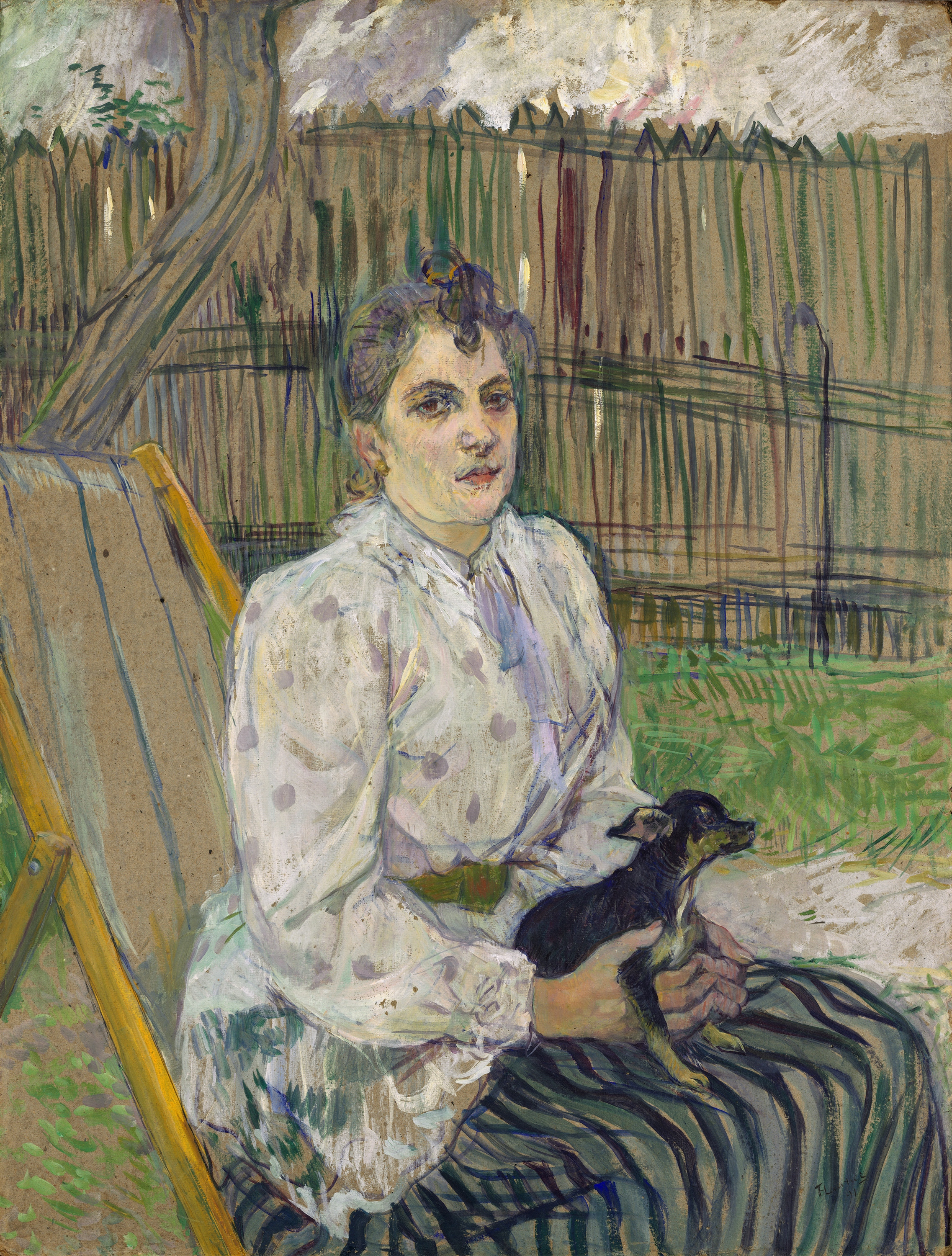
Absolutely fantastic.. I was transported back 50 years to my own childhood living in a small town in Hampshire… I have visited some of my childhood haunts .. perhaps I shouldn’t of as looking through the eyes of an adult the old haunts have changed even though they appear the same . The magic of childhood is wasted on children
LikeLiked by 1 person
Thanks, John- I’m glad you enjoyed it. I know exactly what you mean about old childhood haunts. I still live in the same area so I don’t have much choice! If I can, though, I try to avoid old school reunions. I have many fond memories, but I’ve only been back to my old school grounds once and it was so strange. Melancholy, almost. I don’t know why, but I couldn’t shake it so I’ve chickened out of subsequent reunions. These past few years, I’ve made a special effort to revisit my old fishing/birding grounds- and then go that little bit extra, i.e. get to all of the places I wasn’t able to as a teenager. Now, that’s been deliciously fun at times… I’ve had owls and perch all to myself… Best Regards, Gazza
LikeLike
Gareth,
I remember the first version and that description of her garden, lovely, lovely work. Did you find the beautiful Lautrec in a cupboard just after you found the memory stick? All the best, John
PS I’m not a serious birder by any means but I have never seen so many Blackcaps in the reeds by dykes. There have been flocks of Swallows numbering hundreds and an abundance of Reed Warblers too. Fascinating.
LikeLiked by 1 person
Hello John- Good stuff! Yes, that old Lautrec had been hanging about for ages- about time I did something with it!
Pegwell has got its share of spring blackcaps back, although I’m told they’re staying on in some parts of the country these days due to warmer winters. I suspect some birds always have; lots of swallows too. Last year, my dad was coming out of his garage when a swallow flew in and hit him in the chest! He lives above the bay. Now, reed warblers confuse me, mate- as do all warblers. I can never tell them from a common whitethroat. If ever I get a photo of one, I have to put it on the online forums to identify it.
I’ve been seeing quite a few marsh tits on a local pond, recently, which has been lovely- so striking. But my absolute highlight this year was the three dusks I spent with a short-eared owl in late April on Pegwell Bay; that’s late for them here- it probably wintered further south and was stopping off to feed before heading north again for its summer home. There are half a dozen that regularly winter in Sandwich Bay but they’re gone by late March. I’m going to write a blog or three about this owl. Every night I got closer to it- my final shots of it were yards away… What I want now is to photograph a hunting hobby…
Best Regards, Gazza
LikeLike
gareth
how lucky you were to grow up in such a beautiful spot !
my ‘ grimmish’ but happy childish haunts were demolished in the late 1960’s and very soon lost all the northern ‘working class’ area spirit to later become one of the worst drug ridden council estates in the country well after i’d left – thank goodness
the only italians i saw were ice cream vendors
we used to be woken up by the coughing of the local town sparrows and pigeons and i can remember the genuinely yellowish pea soupers after bonfire nights
how i relished the local parks for some greenery and catching my first fish in one of them ( yes – a two oz perch ) later at 19 i moved well out with open countryside less than a mile away – another world !!! … another life really
ron possibly on wife’s mail in error
LikeLiked by 1 person
Hell Ron!
Grand to hear from you, mate- that’s bloody intriguing. Sounds like you did a John Wilson- I never knew until a couple of years back that he lived in a London flat until he was 22; his escape was fishing on the weekends and he used to go to Norfolk on his motorbike when he was old enough.
We seem to huddle as a species but from time to time we need those green oases. Pegwell was an absolute delight. Believe it or not, I was a homebody, really. I adored nature and sketching it but didn’t really get out properly until I was 12 and took up fishing. It gave an asthmatic mother’s boy a new lease of life. Pegwell provided me with my first bass- and my first kestrel, too.
There were so many children there in those days. We all used to play football for 12 hours a day in the summer, or else go BMXing and rock-pooling. I remember once, we decided to tip over the ‘biggest rock’ on the bay. It took 12 children to flip it and when we did, we unleashed an army of 30 or so crabs- including some of the biggest I ever saw! So yes, lots of beautiful memories from Pegwell. I knew then that my childhood was a beautiful one. It was only sometimes tinged with sadness, or reminders that the outside world could be hard; the most striking example of this was when a huge whale washed up on the bay, just down from the local pub. With help from the locals (including us kids), he swam back out to sea that night but returned the next day in poor condition. The experts said that he was terminally ill and trying to kill himself. A vet put him out of his misery… A very sad memory and one that I’ll never forget. I couldn’t believe that something so big and beautiful could swim about so close to where I lived. I’ve never seen a whale up close ever again. Maybe I never will.
Here’s to our childhoods, old son.
Speak soon, Gazza
LikeLike
That evoked a real feel of childhood lost. There were scary old ladies on every street when I was a kid.
LikeLiked by 1 person
Hello Paul- Thanks for reading, mate. Yes, I know what you mean! I got chased a few times but Reeny turned out to be something else. What a beautiful soul. I’m not exaggerating above- she really did cook for my family for years- to this day, I’ve never tasted anything like it- Italian or otherwise. I keep trying, but I can’t get anywhere near it. Her best dish was a pork ‘sugo’ that she would pour all over a tray of farfalle… Magical memories… Speak soon, Gazza
LikeLike
you surely must be an accomplished writer , a wordsmith extraordinaire
glenn
LikeLiked by 1 person
Hello Glenn- What a lovely comment- Thanks so much for taking the time to read.
I wrote this entry a couple of years back but it’s one of my favourites.
Reeny was a lovely woman and I’m still trying to cook a pasta sauce that comes somewhere near hers!
I also still cycle though Pegwell in the summer time.
God Bless- Gazza
LikeLike